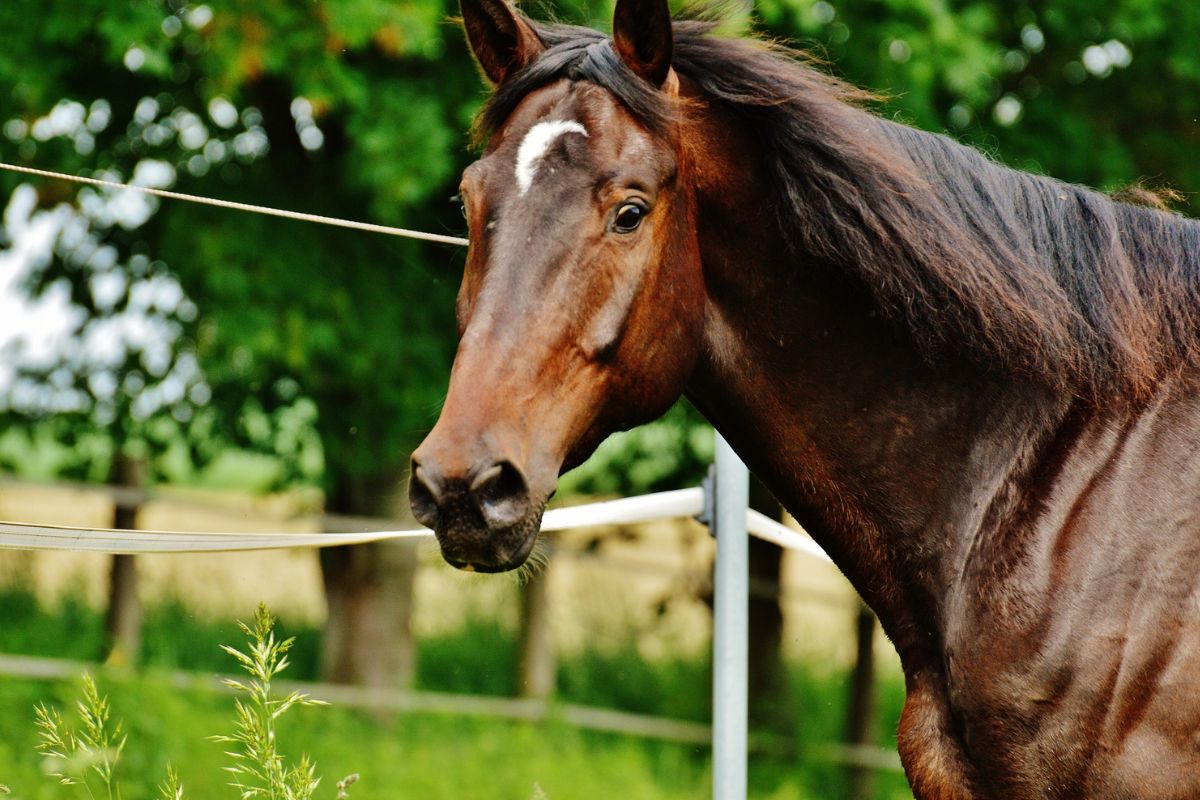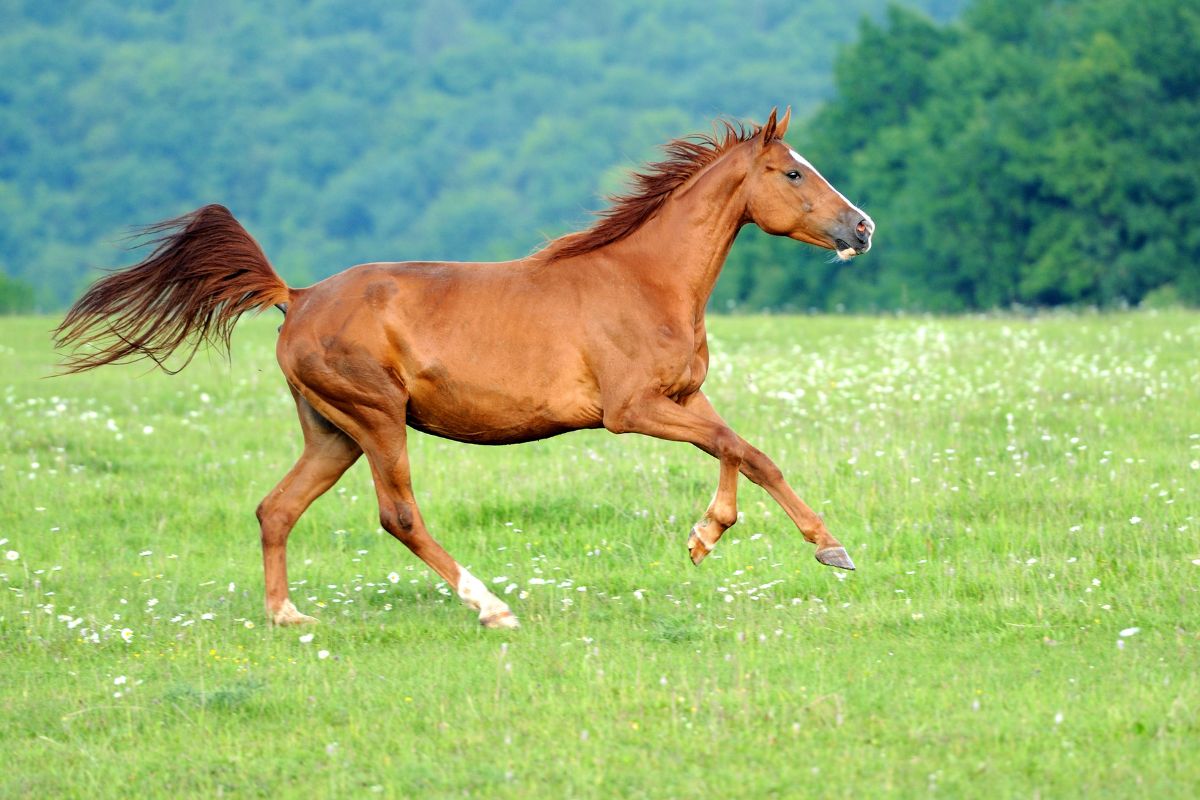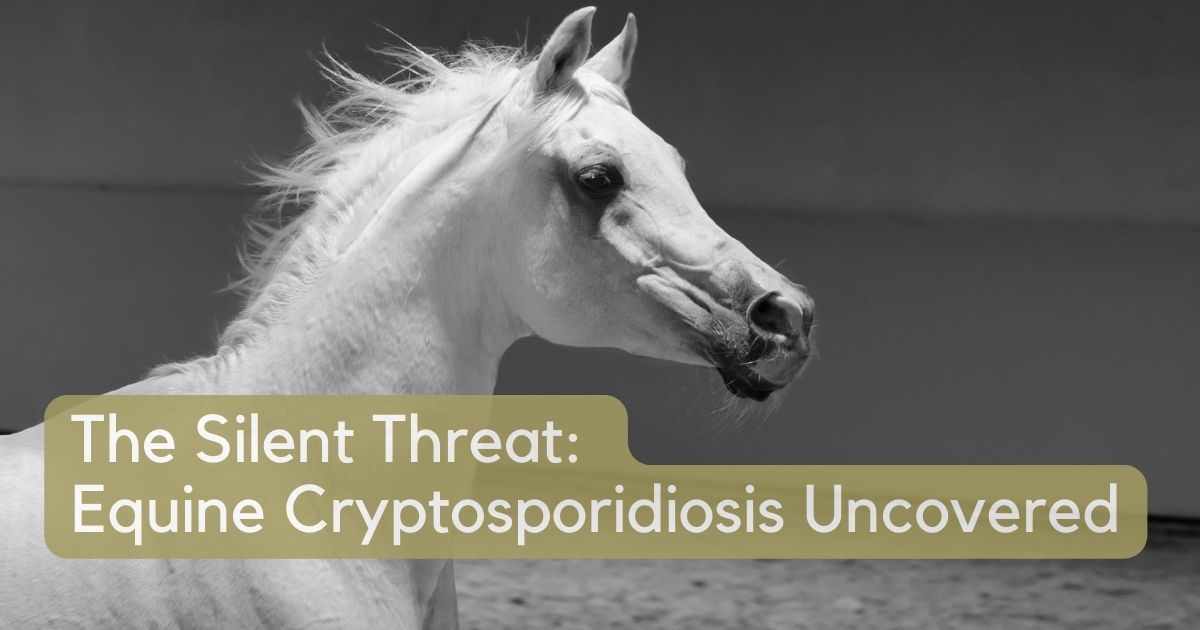What is Equine Cryptosporidiosis?
Equine Cryptosporidiosis is a parasitic disease caused by parasites that belong to the family Cryptosporidium.
This parasitic disease is a threat mostly to neonatal ruminants, especially when they are under stress.
So what is Cryptosporidium exactly? Let us explain.
Cryptosporidium is a protozoan species belonging to the genera Cryptosporidium. These genera have a global distribution and infect a wide range of animals, including humans.

What are the Causes?
The cause of parasite Cryptosporidiosis, as mentioned above, is parasites belonging to the group Cryptosporidium.
Foals are highly susceptible to these parasites, especially when under stress or immunocompromised.
The parasite linked to causing illness in foals aged from one to four weeks old is known as Cryptosporidium parvum. However, the parasites can cause clinical symptoms in foals up to six months old.
Infection happens by ingesting the infective oocyst via contaminated water, feed, or soil. They can also survive in the environment for a prolonged amount of time.
Humans are not immune and are also susceptible to this parasitic disease. This type of transmission is known as zoonotic. It is treatable in humans, also.
Where is Cryptosporidiosis Found?
The answer to where to find Cryptosporidiosis is that it exists in the environment.
The oocysts are in the infective stage and fully-sporulated. When excreted via feces, environmental contamination occurs.
These parasites can be transmitted directly from animal to animal or indirectly via the environment or fecal contamination in feeds or water supply. Fomites can indirectly transmit them.
As Cryptosporidium parvum is not host-specific, infections from other species, such as rodents, may also occur.
These oocysts resist disinfectants and can survive for months, given the right environmental conditions, such as appropriate moisture and coolness.
Disinfectants that are proven to be very effective are listed below:
- 5% ammonia
- Formalin
- Freeze drying
- Hydrogen peroxide
- Chlorine dioxide
What are the Symptoms, and How is it Diagnosed?
What are the symptoms of Cryptosporidiosis, and how is it diagnosed? Read on to learn and, more importantly, to be able to recognize the clinical signs early on.
If your foal demonstrates any of these Cryptosporidium symptoms, you must contact your veterinarian as soon as possible to examine your horse:
- Diarrhea lasting for several days
- Dehydration
- Weight loss, even emaciation
- Apathy
- Anorexia
Also, feces have a yellow/pale color and contain mucus.
In the case of adult horses, it is not uncommon to have subclinical infection meaning that the horses show no symptoms and appear healthy. This can be particularly risky as the adult horses may be shedding oocysts via their feces, but as they are not showing any clinical signs/symptoms, they are above suspicion.
The presence and identification of oocysts in the feces provide the veterinarian with a definitive diagnosis of Cryptosporidiosis.
You can identify the oocysts by using various methods of fecal examination:
- Staining
- Immunofluorescence assay
- Flow cytometry
- ELISA (enzyme-linked immunosorbent assay)
- PCR (polymerase chain reaction)

How is Cryptosporidiosis Treated in Horses?
Regarding Cryptosporidiosis treatment, it is mostly supportive.
Fluid therapy and electrolyte replacement are vital to compensate for the fluid loss and dehydration caused by prolonged diarrhea.
There are no antibiotics available that treat this parasitic disease. Also, diarrhea is usually self-limiting and resolves within a few days.
Administration of nutritional support and antidiarrheal pharmaceuticals is crucial to your foals recovery.
These treatment steps help stop diarrhea and help maintain and support the immune system strong and provide all the necessary vitamins and energy for the foal during this period of illness.
The stronger the immune system of your foal is, the faster the recovery process is, and it greatly reduces the risk of further complications.
The Prognosis
The prognosis for Cryptosporidiosis is excellent. By administering the necessary supportive treatment, your foal can make a speedy recovery and be healthy and strong again.
The highest risk group for this disease is foals that are immunocompromised. Especially foals suffering from severe combined immunodeficiency syndrome.
This syndrome puts foals at risk as they are born with a weakened immune system, making them susceptible to illnesses and infections.
Concurrent infections also increase the pathogenicity of this parasitic disease. This risk of concurrent infection is why it is very important that if you see your foal suffering from diarrhea or low appetite/anorexia, contact your veterinarian as soon as possible to examine your beloved equine.
The sooner you have a diagnosis, the sooner you can start battling the condition with a higher success rate.
Can Equine Cryptosporidiosis be Prevented?
As a popular saying goes, prevention is better than cure. This saying also applies to this parasitic disease.
Currently, there are no vaccines available to protect against Cryptosporidiosis.
It is often challenging to control the infection and spread of this parasite.
Hygiene in these types of infections is very important and your biggest ally in this battle. As mentioned above, these parasites and their oocysts are very hardy and can remain viable in the environment for months given the right environmental conditions.
So, maintain water and feed clean. Also, clean and replenish water sources frequently.
In the instance of infection, isolation of the foal prevents the further spread of the parasite to other animals.
Frequent disinfection of all areas and removal of fecal matter from the premises is a priority.
Remember that this parasite can also infect humans, so keep your hands clean and wear personal protective equipment when cleaning contaminated areas and coming in with fecal matter.
Your veterinarian can also help you to implement excellent biosecurity protocols to protect your paddocks and farms. So don’t hesitate to ask for help and advice. They will be more than happy to assist you.

That’s All, Folks
Cryptosporidiosis in the equines is a manageable and preventable parasitic disease. Combined efforts between you and your veterinarian are key in successfully managing this hardy parasite.
So, always provide your foals with high-quality nutrition and a clean environment to give them a strong and healthy start in life.
Even if your foal is suffering from an immunocompromising disorder, you can still support its immune system and maintain them healthy.
Biosecurity protocols are your best friend and help prevent and battle these diseases. They provide all the necessary steps and actions needed to keep parasites out of your equines’ environment.
Also, examinations and health checkups by your veterinarian throughout the year are also very important in identifying and treating any diseases at their earliest stages.
